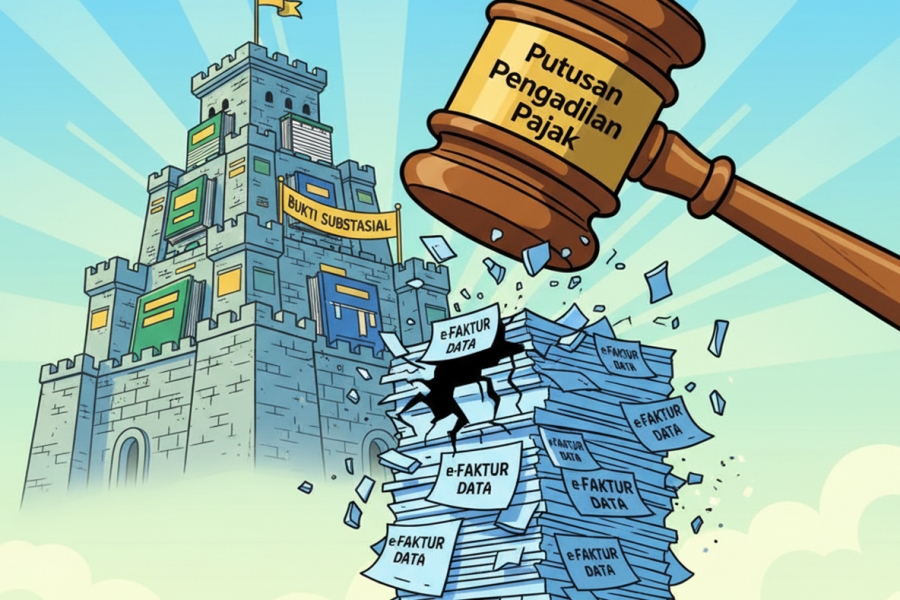
In the midst of the tax digitalization era, the utilization of third-party data by the Directorate General of Taxes (DJP) is becoming increasingly intensive. However, an important ruling in the PT PL case sets a clear boundary: formal system data, such as e-faktur, cannot be the sole basis for making a tax correction without being supported by strong, substantial evidence. This case began when the DJP made a corporate income tax (PPh Pasal 23) correction of Rp2,451,905,463.00 against PT PL.
The conflict in this dispute centered on the weight of evidence. The DJP based its entire correction on the findings of e-faktur purchase data on the DJP Portal under the name of PT PL, which was reported by a third party. The DJP argued that this data was legitimate and valid because it was reported under a legal obligation. Conversely, PT PL strongly denied the existence of the transaction. They substantiated their denial by showing that the invoices were never recorded in their books, never expensed, and never credited in their VAT Period Tax Return (SPT Masa PPN). This rebuttal was further strengthened by a letter from the third party, who also stated that no transaction had occurred.
In a crucial ruling, the Panel of Judges granted PT PL's appeal. The Panel was of the opinion that e-faktur data from the DJP Portal, although formal data, could not be deemed competent evidence to establish the existence of an object subject to PPh Article 23. The Panel assessed that the DJP had failed to prove the substance behind the formal data. In other words, the DJP was unable to show evidence that the service transaction underlying the issuance of the invoice had actually occurred and was received by PT PL.
This ruling is an important precedent that affirms that the burden of proof remains with the DJP to demonstrate the existence of a taxable transaction. Electronic data is merely an initial indicator, not final proof. For Taxpayers, this is a victory of principle that offers protection from potential arbitrary corrections based solely on data matching. The main lesson is the importance of maintaining the integrity of internal records and being proactive in performing confirmation if external data is found to be inconsistent. Routine reconciliation between company records and data on the DJP Portal is now a non-negotiable mitigation step.
Comprehensive and Complete Analysis of This Dispute is Available Here